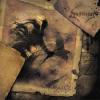Purpose of the topic: get a feedback on the turned based combat sketch- synchronization, get interested heads together, forsee the problems, propose improvements, specific application tweaking etc.
Requirements on the combat system:
- first person perspective, potentially 3rd
- more engaging multiplayer for turn based combat (waiting till faster PCs finish seems frustrating for MP)
- big difference in player characters speed should be covered (Shadowrun PnP- 1 action VS 2-3 actions for super fast PCs per turn)
- allow players gameplay less based on reflexes and with blend of tactics as usual for turned based combat.
Combat system's synchronization sketch:
Gameplay before combat starts is real time where PCs act with basically same speed (Jagged Aliance 2).
When combat emerges initiative mode is entered. Suppose Player Characters can have initiative 0- 30 with strong dependency on atributes, cyberware and scenario (RNG, surprise etc.).
In intiative mode capsule around engaged PCs is created (distance, entaggled players outside, other rules) as a visible barrier. Shooting into it is possible but bullets slows (based on internal capsule's pacing) when entering the capsule, also there is potential for capsule's expansion and drag the attacker into turned based combat.
At the beggining of the combat each player is informed and vision is temporarily frozen.
- Players decision now to choose PROACTIVE or REACTIVE mode.
PROACTIVE mode:
- player is dictating pace basically. From the frozen view baseline player starts his action plan based on current state and his prediction what is going to happen. Instead of seeing the other players moving real time he or she sees growing cloud of uncertainty of position of other PCs untill display darkens for the planing whole turn. As uncerntainty grows with time when planning from known state it is not effective doing too long predictive actions. Planning gameplay is similar to real time, but instead seeing others PCs moving there is cloud surroundig each other PC growing. Player needs to predict reactions which can also mean shooting into empty space where target's evasive action is expected. Length of interval is voluntary based on shortest PROACTIVE PC with some hardcoded minimum. When "plan" is done proactive player confirms and waits for the EVALUATION where he/she can be knocked out of his plan (killed, knocked down, disarmed etc.).
Note: Proactive player can be either limited in speed of his actions (standard time for an action), or volatile timing- when going faster then normal pacing penalty on skill checks is taken (thus speed can be also achieved with high skill neglecting the penalties).
REACTIVE mode:
- player indicates to whom he/she wants to react and waits until EVALUATION. When evaluation starts PROACTIVE player characters start unwinding the plan given by the players. REACTIVE players are seeing the action and are provided by action points- basically speed of movement they can move relative to PROACTIVE player characters. Negligible lag or speed penalty should be given to REACTIVE players in order to maintain realism and/or game balance. Ideally speed of player characters is compared and action points are mapped to REACTIVE player, if he/she wants to move faster then standard actions more lag he/she gets before his move happens (at faster rate though). So fast moving PROACTIVE PCs can be caught (imagine you have fraction of speed to them).
This way even slower player characters should be given chance to outwit or knocked out faster player characters of their actions.
Thanks for reading up till here ;-).






